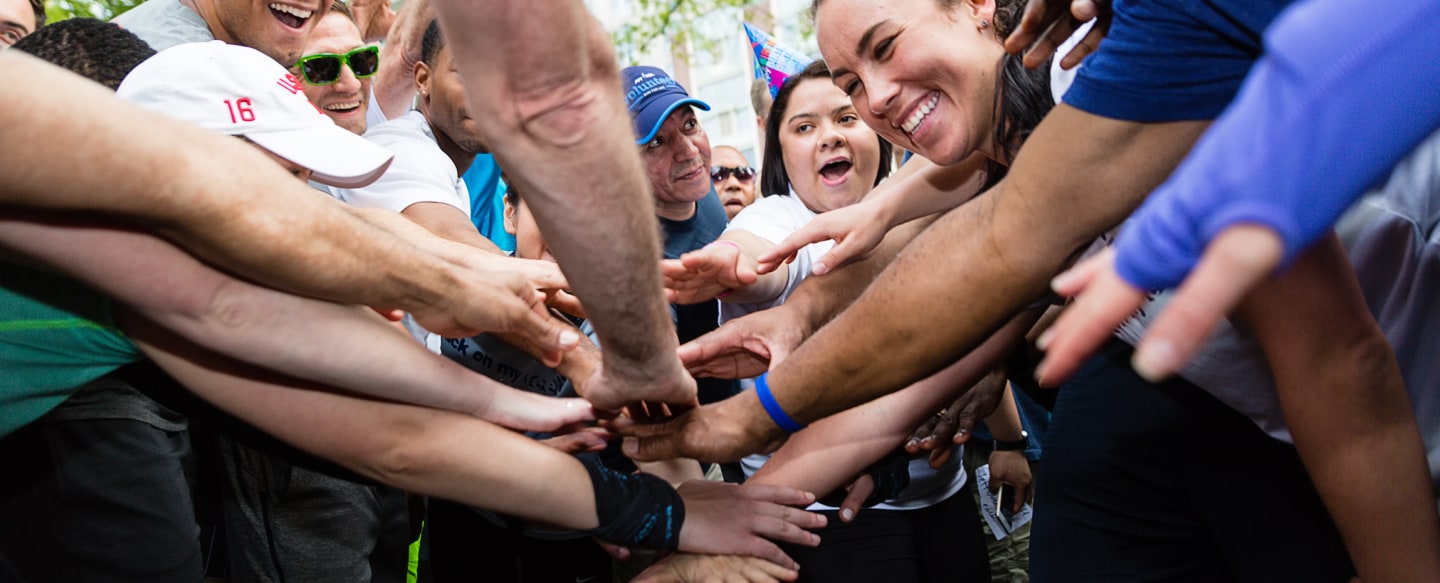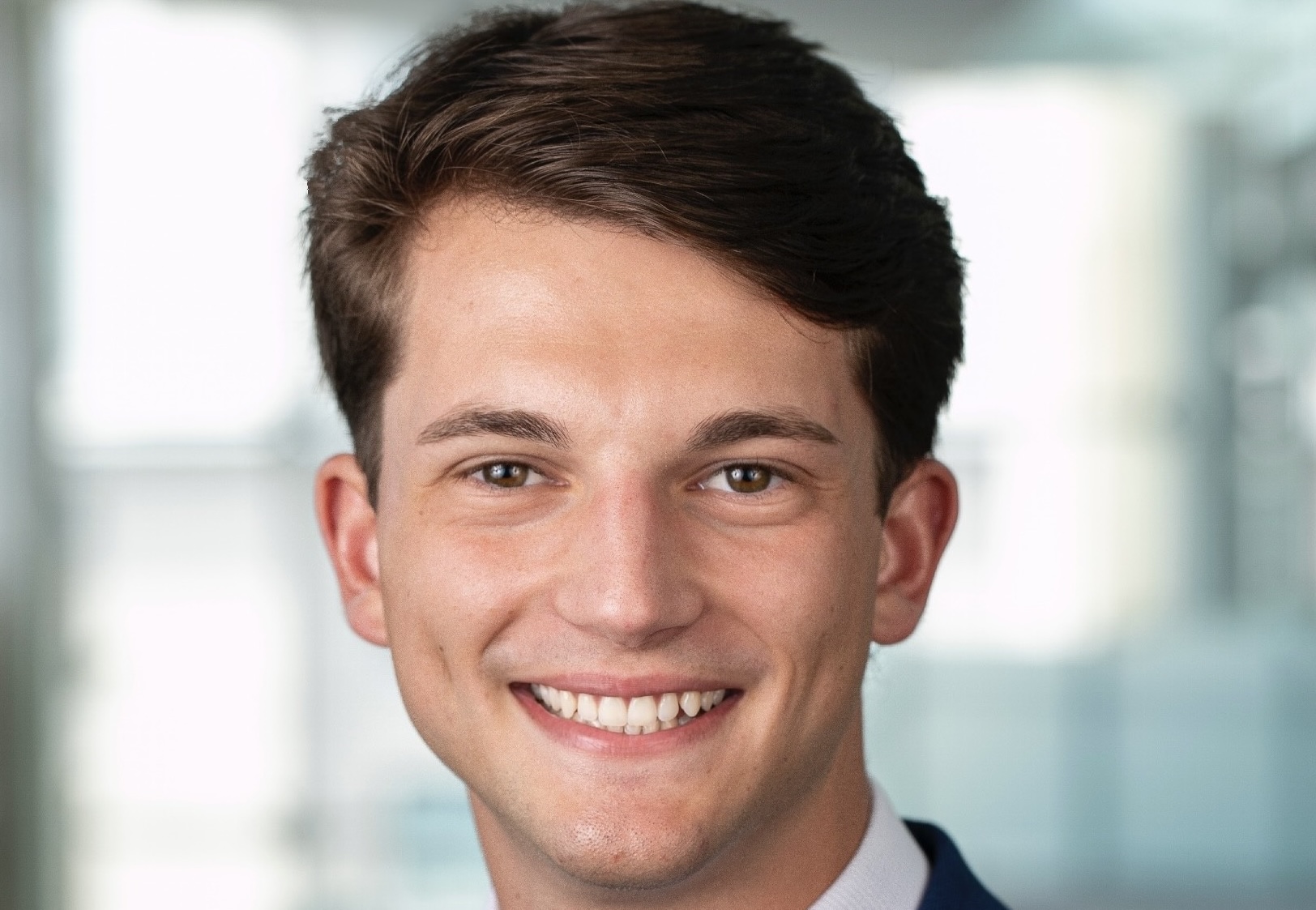“There are millions being left behind,” Charles Koch Foundation (CKF) Executive Director Ryan Stowers told an interviewer earlier this year.
Stowers was discussing postsecondary education specifically, but that statement rings true for all of CKF’s focus areas. A top down health care system has not improved well-being or access to care, for example, and divisive rhetoric has created a society where entire groups are taught to destroy rather than build.
CKF partners with social entrepreneurs who remove barriers that prevent people from reaching their potential. And we could not be more proud of the work our partners did in 2022.
Here’s a brief look.
Education
“[I]f every learner is unique, it’s also important that we have a diversity of options that reflect the individual needs and preferences,” wrote Stowers and Make It Movement Founder Roy Spence in a March column.
CKF partners show how education can better serve its purpose if we shift from an overemphasis on degree attainment to a focus on individualized growth and lifelong learning. As our spring editorial series highlighted, this transformation is often happening at the intersection of work and learning. CKF partners include innovative training providers and hybrid colleges like Reach University, Merit America, PelotonU, and Per Scholas, which each helped thousands of lifelong learners this year.
We are also proud to support organizations like SkillUp, which has provided more than one million workers with access to scholarships, regional educational or career advancement programs, and a web platform that unlocks career growth.
Creating new pathways for lifelong learning is another priority for our partners. In 2022, Education Design Lab’s Community College Growth Engine Fund continued to expand with CKF’s support. Now, nearly 30 institutions partner with local employers to create unique micro-pathways that teach people the skills they need to reach their full potential.
According to the Society for Human Resources Management (SHRM), 72 percent of U.S. workers believe these new pathways to credentials are an affordable way to gain the skills or experience necessary for a new job. In 2022, SHRM launched skilled credential pilots with 10 companies and will soon release a toolkit for companies that want to tap into nontraditional talent sources. Additionally, more than 80 companies are using solutions created by SHRM, the U.S. Chamber of Commerce Foundation, AdvanceEDU, and TGR Foundation to create alternative paths to employment.
And there’s more to come.
This year, we helped launch a partnership with the Catalyze Challenge for which CKF’s director of partnership development Brennan Brown serves as an advisor. The Catalyze Challenge, which is supported by an array of funders including the Arnold Foundation and the Gates Foundation, provides funding for education entrepreneurs to develop and scale learner-centric, career-connected models and experiences. In September, it announced 25 new grant winners who will each receive up to $500,000 to generate new models that equip learners to discover their aptitudes and develop skills that will lead to fulfilling careers.
We are excited that our vision for a more inclusive and effective postsecondary education system is being heard and discussed widely, including at ASU+GSV, SXSW, the JFF Horizons Summit, and a virtual leadership event hosted in late 2022 by PerScholas and SkillUp.
Free Speech and Peace
CKF works with leading scholars to discuss how to address rising polarization. For example, with support from CKF and other organizations, scholars at Dartmouth, Stanford, and the University of Pennsylvania launched the Polarization Research Lab (PRL) this summer. PRL is developing the most comprehensive database to date on polarization, which will help illuminate the causes, consequences, and solutions to political animosity.
The PRL already has released research showing Republican and Democrats tend to perceive larger divisions between themselves and members of the other party than actually exist. To us, that means there is hope for reducing polarization.
Economic Progress
In 2022, CKF supported the Center for Growth and Opportunity’s (CGO) Abundance Agenda, which combines polling, experimental economics, and research to develop solutions that will enhance economic opportunity, innovation, and openness to immigration.
This fall, the CGO polled 1,000 Americans to understand what they think about abundance and the role of technology and innovation in providing it. The survey is a snapshot of Americans’ attitudes about the future and their confidence in public and private institutions to build that future. In October, CGO released a paperoutlining policies that drive abundance and in June it released a paper showing how abundant energy contributes to economic well-being.
We also continued to support scholars exploring the principles that enable individuals to find meaning in work by creating value for others. As entrepreneur and professor Andreas Widmer told us in an interview, “Principled entrepreneurs believe the economy exists for people, not that people exist for the economy. … The common thread among principled entrepreneurs is they see and seize opportunities and are concerned with adding value for others.”
Criminal Justice
CKF’s ongoing support for scholars leading public education about criminal justice reform is driving progress toward a safer and more just society. Their work will improve public safety by helping law enforcement, prosecutors, and courts focus resources on preventing and solving crime that violates life, liberty, and property. For example, New York University’s Policing Project filed a lawsuit on behalf of comedians Eric André and Clayton English that challenges a program that relies on racial profiling to target, stop, and search passengers in the jet bridges at Atlanta’s Hartsfield-Jackson airport.
Arizona State University’s Academy for Justice hosted a marijuana clemency event in July that featured activists, policymakers, congressional staff, and academics. ASU’s Erik Luna also met with White House officials this summer to discuss clemency options.
Health Care
The United States offers some of the best health care in the world, but too many patients face barriers to accessing the quality and affordable care they deserve.
A CKF-supported research initiative led by Johns Hopkins University School of Medicine Associate Professor Brian J. Miller, MD, is positioning medical residents to be future health policy leaders and is building a framework to empower local and private sector decisionmakers to solve public health problems.
University of Chicago scholar Casey B. Mulligan examined the collateral damage caused by pandemic-related restrictions and lockdowns and Tomas Philipson developed a policy brief that looked into how drug price controls would impact of President Biden’s cancer moonshot.
In November, the University of Southern California’s Leonard D. Schaeffer Center for Health Policy and Economics held a health markets symposium to drive collaboration between health economists and policymakers who want to develop evidence-based health policy solutions. The symposium is the first in a series that will better connect policy research to influencers and policymakers. Read more about our support for the Schaeffer Center.
Science of Liberty
Humans’ ability to ask questions, exchange knowledge, and advance new theories gives us the extraordinary opportunity to create the conditions necessary for all people to find purpose and unlock their potential. History has shown some principles are especially important ingredients in facilitating this progress. In an editorial series this fall, CKF partnered with scholars to discuss which principles are most important for human flourishing, and why.
CKF also continued its support of the Institute for Humane Studies (IHS), which connects scholars from across the humanities who incorporate the principles of human progress in their work. In 2022, IHS helped more than 2,000 graduate students and faculty members with research, network-building, and career development assistance and awarded nearly 700 grants to help support scholarly projects that advance bottom-up solutions to some of our country’s most pressing problems.
Foreign Policy
As Fritz Bartel, assistant professor in Texas A&M University’s Department of International Affairs, told us in an interview, “[W]hen the United States keeps military options in the background, it retains enormous power to shape world politics in moral, ideological, and economic ways.”
So when Russia’s invasion of Ukraine unfolded, dozens of CKF partners weighed in on the crisis. Their voices were read in more than 90 publications and heard in more than 10 major media appearances. Their engagement ensured the merits of restraint were considered and raised critical concerns about the dangers of nuclear escalation.
CKF also supported the launch of a multi-year effort led by Monica Duffy Toft of Tufts University that will reevaluate the fundamental assumptions underlying major U.S. decisions during the war in Afghanistan. This research is the first comprehensive, independent study of the Afghanistan war and is expected to provide important insights to inform future decisions on military engagement.
Immigration
Being open to new ideas — and new people — is an important factor in a society’s ability to grow and advance, and CKF built on its commitment to support scholars who shed light on the impact of U.S. immigration policies. Welcoming immigrants who want to enrich their lives will enrich U.S. communities.
In October, Stanford University’s Immigration Policy Lab partnered with Lutheran Immigration and Refugee Services to beta test its GeoMatch tool in the United States. GeoMatch is an algorithmic tool that can be used to discover communities where immigrants are most likely to find jobs fitting their knowledge and experience. The platform leverages an immigrant’s own information, along with historical immigration data, to make these predictions. Refugee resettlement agencies in the United States and worldwide can use the tool’s recommendations to guide placement decisions for their clients about where to live.
We are proud of our partners’ work — and are eager to do more in 2023. If you have an idea that will help more individuals reach their full potential, partner with us.











